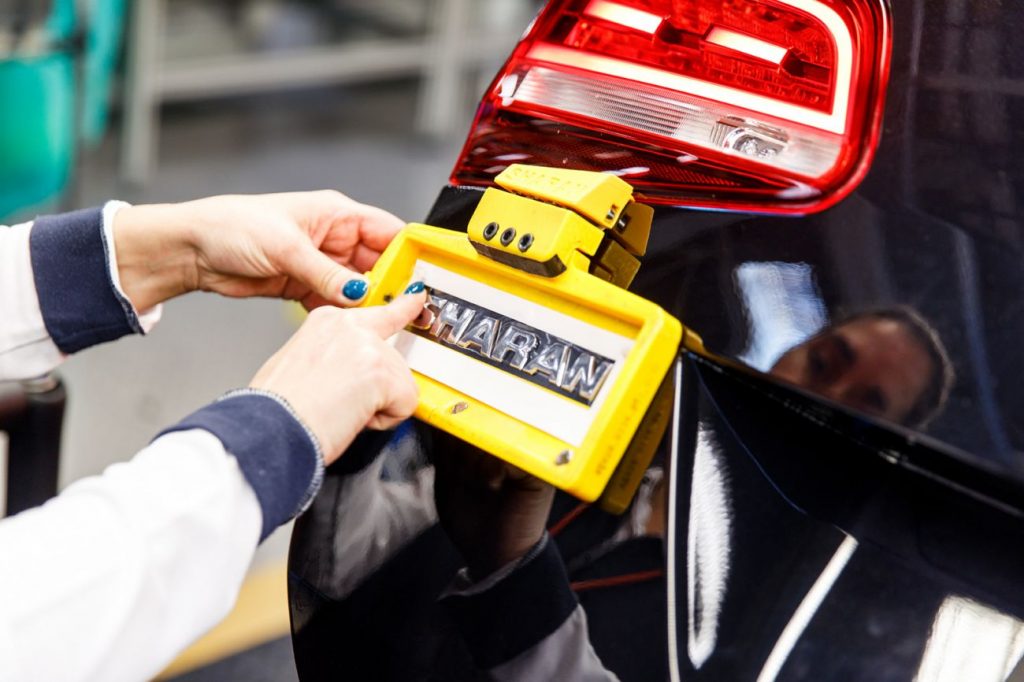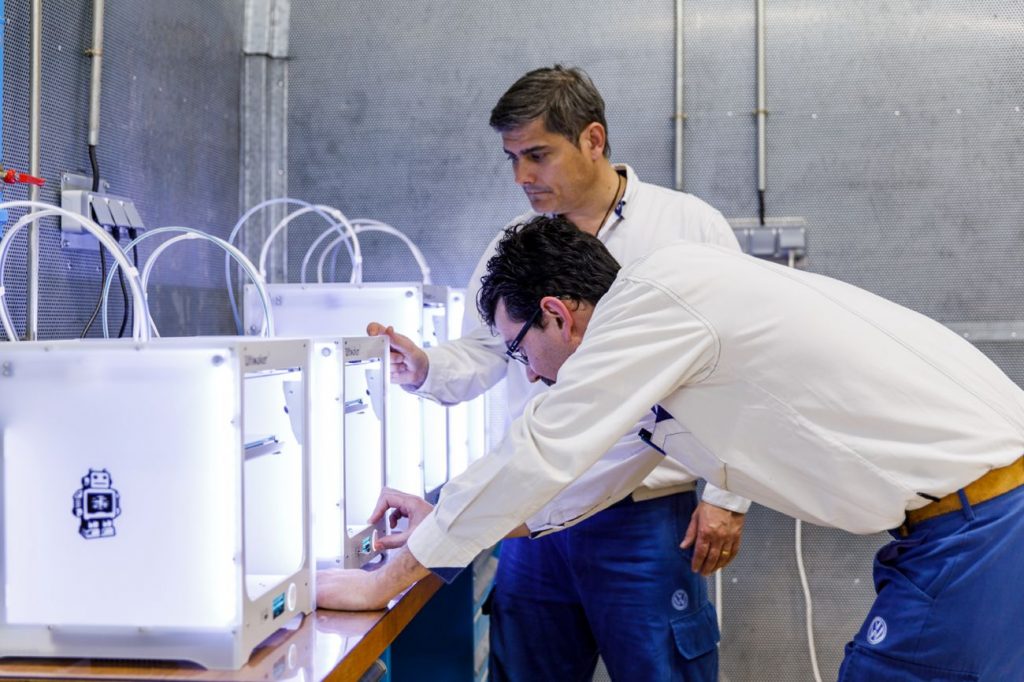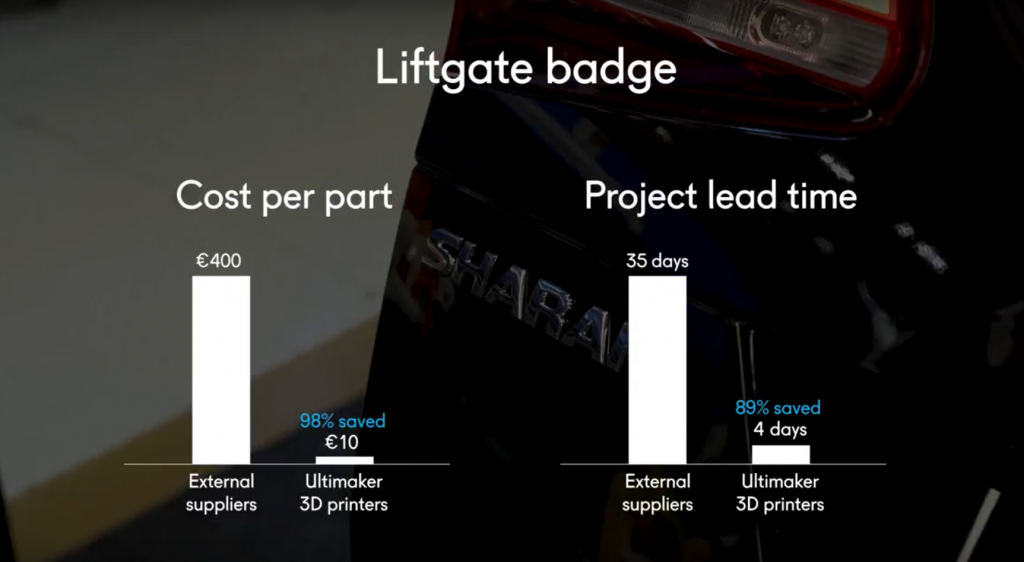Since 2014, the Volkswagen Autoeuropa factory in Portugal has been using 3D printers to produce tooling components for use on the assembly line. Volkswagen has announced that, in 2016, the factory made an annual saving of $160,000 using FDM desktop 3D printers – reducing typical production costs by over 90% and taking 95% less time on tool development.
Remarkably the 3D printers are not the industrial machines with price tags of $100,000 upwards, but desktop 3D printers from Ultimaker.
This year, Volkswagen expects to increase savings at the factory to $200,000, with the end goal of saving quarter of million in costs each year.

Seven 3D printers, one-thousand parts
The Volkswagen Autoeuropa pilot plant assembly line is currently serviced by a bank of seven 3D printers including the Ultimaker 3 and Ultimaker 2+. In a single year the plant, which employs 4,000 people, turns around 100,000 cars, including vehicle upgrades and new models in VW’s Scirocco and Sharan ranges.
In 2016, the factory 3D printed around 1,000 tooling parts, meaning in the initial investment was recouped within 2 months.

Example tooling
One example of a component transformed by 3D printing is the liftgate badge tool. This is a tool used to accurately apply a car’s model name. Ordering the tool through an external supplier would typically cost Volkswagen approximately $445.
3D printing the part instead costs the company just $11. Lead time is also 89% shorter, with outsourcing taking an average of 35 days, and 3D printing just 4.

Furthermore, fragile parts of the 3D printed liftgate badge tool can be easily be replaced on-site. Previously damaged would have been scrapped by the factory.
Elsewhere in automotive
Using 3D printing, Volkswagen has also launched a pilot project to produce saleable spare parts for its cars, and used the technology in parts for a custom GTI model.
Elsewhere in the automotive industry, injection molding company Techniplas LLC has announced a specialist additive manufacturing facility headed up by Avi Reichental, former president and CEO of 3D Systems. Additionally, the European Union has started a €2.7 million project to produce more ecofriendly 3D printer materials to be used in cars.
Stay up-to-date with the latest 3D printing news by subscribing to our newsletter and following us on twitter and Facebook.
Featured image: A 3D printed jig used to protect wheels when affixing bolts. Photo via Ultimaker



